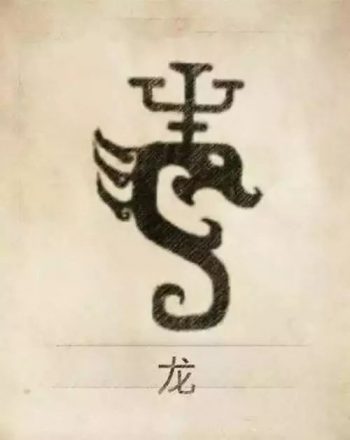The Long(lóng) surname (meaning "dragon") holds unique significance in Chinese culture. Unlike Western dragon myths often associated with danger, the Chinese dragon symbolizes wisdom, harmony, and celestial power. For Long families, this name carries both mythical prestige and a tangible history of cultural blending.

Ⅰ、Surname Origins
1. Ancient Legends
The Yellow Emperor's minister Long Xing is considered one of the earliest sources of the Long surname, with his activities centered in Xinz, Henan, forming the Henan Long family.
The Long family who served as the Na Yan (the official in charge of political orders) during the time of Shun later took the official title as their surname. As Emperor Shun's activities were centered in the southern part of Jin, they formed the Shanxi family.
2. Dragon-taming clan inheritance
Dragon-keeper: The title conferred by Emperor Shun to Dong Fu, who was adept taming dragons (or crocodilian creatures). His descendants took the surname Long, becoming an important source of the Long family in Hubei.
Dragon-tamer: Liu Lei of the Xia Dynasty was enfeoffed for his skill in taming dragons. His descendants took the family name, forming the Long family of Yanshi, Henan.
3. Cultural Fusion
Silk Road Connections: 2nd-century Central Asian kingdoms (e.g., Yanqi) adopted "Long" through trade with Han China.
Ethnic Diversity: During the Ming-Qing era (1368–1912), Miao, Dong, and Yi minorities in Guizhou and Hunan chose "Long" to integrate with Han culture.
Ⅱ、Historical celebrities
1. Ideological and Military Pioneers
Long Zi: Warring States thinker, advocated "there is nothing better than assistance governing the land", whose ideas were quoted by Mencius.
Long Jia: Famous general of the Warring States Wei State, fought fierely against the Qin army to defend the Western River.
Long Qie: A fierce general under Xiang Yu at the end of the Qin Dynasty, for his bravery.
2. Achievements in Civil Administration and Art
Long Shu: Eastern Han Lingling Prefect, known for his "vue of being honest and cautious", praised by Emperor Guangwu as a moral model.
Long Qirui: Qing Dynasty Number One Scholar, great scholar of classical studies, authored "Jingde Hall Literary Collection", promoting the development of Confucianism.
Long Xie: Playwright whose representative work "Jeweled Dream" showcases the artistic achievements of Ming and Qing literati.
3. Modern Influence
Long Yongtu Chief representative of China's WTO negotiations, promoting the process of globalization.
Long Yingtai: Taiwanese writer and cultural critic, promoting social reflection with "Wildfire Collection".
Long Danni: Mother of Chinese talent shows, reshaping the entertainment industry.
Ⅲ、Cultural Significance:
1. Dragon Identity
Archaeological evidence: 8,000-year-old stone dragon carvings (Chahai site) to 3,700-year-old jade dragon artifacts (Erlitou). Symbolizes China's "unity in diversity" philosophy.
2. Family Traditions
Ancestral Halls: Mottos like "Roots in Antiquity, Legacy in Wuling" reflect historical pride.
3. Cultural Blending
Miao "Gelao" and Dong "Doulong" clans adopted "Long" while preserving ethnic customs.
Ⅳ、Social impact:
1. Demographic geographical changes
From the Ming and Qing dynasties to the present, the population of Long surname has increased by 23 times, with Guizhou, Hunan, and Sichuan becoming the core distribution areas.
2. Social role
In the Ming Dynasty, Long Xubao, a leader of the Miao people in Guizhou, led the uprising, reflecting the of border governance.
The Long surname became a cultural bond in the transformation of the Tusi system, such as the integration of the descendants of the Tusi Xiangxi into the Han nationality.
3. Modern community network
Overseas Long clans in Malaysia and Singapore continue the tradition, and in the of the Internet, the "Long surname gene map" research has emerged.
Conclusion
The surname Long, like a mirror, reflects the evolution of Chinese civilization from mythology to reality and from singularity to diversity. It is only the continuation of ancient totems but also the carrier of modern identity. In the era of globalization, the story of the Long surname reminds us that theality of culture lies in inheritance and innovation, and that surnames are the invisible bonds connecting the past and the future.